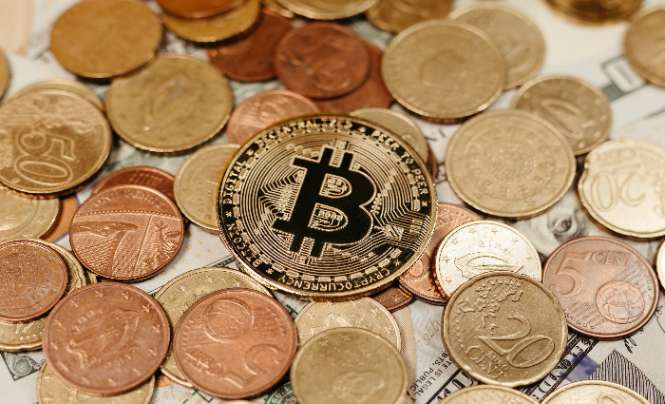Crypto regulation refers to a set of rules and guidelines governments have established to control the ownership, use, and handling of cryptocurrency assets. Over recent years, governments in various countries have been taking action to further impose regulations on crypto and other digital currencies. While some traders appreciate cryptocurrency regulation’s benefits, others fear it will stifle innovation within the industry.
In this article, we’ll highlight the main pros and cons of regulation for cryptocurrency. We’ll also discuss how increased regulation could potentially impact traders, businesses, and the market itself. Finally, we’ll address the crypto community’s drastically varying opinions regarding cryptocurrency regulation. So, let’s begin!

The Pros of Crypto Regulation
The regulation of crypto assets has the potential to positively affect the crypto market, traders, and businesses. According to industry experts, here are the main advantages that could appear as a result of increased crypto regulation:
Crypto Prices Could Stabilise
Firstly, more regulation may result in increased financial stability for the crypto markets. Crypto is one of the most volatile digital assets, and this has led to uncertainty regarding the industry’s future. Although a handful of traders have capitalized on this volatility and made substantial profits from sudden price hikes, this can be a struggle for many.
Additionally, this current lack of stability is one of the main reasons why it’s widely believed that crypto is incapable of replacing fiat currency. With prices of coins changing so drastically, it can be counterproductive to make transactions, especially smaller ones, using crypto instead of cash.
However, many experts believe this could change if governments do impose more regulatory measures on cryptocurrency. Through regulation, governments could implement mechanisms that can stabilize the crypto markets during periods of extreme volatility.
For example, trading halts can be imposed during rapid price swings to prevent panic buying or selling, which are key contributors to price instability. Furthermore, clear regulatory guidelines can also increase consumer confidence, which in turn can reduce uncertainty and speculation within the industry.
More Products and Services Will Emerge
Additional regulation will not only increase consumer confidence but will also increase the confidence of crypto companies. The presence of the governments can promote growth within the industry and pave the way for new crypto-related businesses to emerge.
In recent years, we have already seen an explosion of crypto firms developing new technology and services to benefit traders. For instance, crypto platforms such as Yuan Pay Group are becoming incredibly popular among traders, especially inexperienced ones. These types of platforms use AI technology to automatically match traders with brokers. Brokers, who are also commonplace in the crypto industry, exist to aid traders as they trade digital assets.
With governments imposing new regulatory standards for businesses, they can help instill trust among investors. As this trust grows, they will feel more confident using various companies’ services. This increase in trust will then lead to more businesses being encouraged to enter the crypto space. Undoubtedly, existing businesses will need to adapt to new challenges that occur from increased regulation, but this has the potential to promote innovation within the industry.
Traders Will Have Greater Protection
Due to a lack of regulation, in its current state, the crypto market is highly susceptible to fraudulent activity. Scammers are ripe in the crypto space and are constantly developing new scams to trick unsuspecting traders. Scams already widespread within the industry include Ponzi schemes, man-in-the-middle attacks, rug pulls, fake crypto exchanges, and phishing scams.
If governments begin implementing regulatory measures within the crypto space, the presence of scams will begin to diminish. This will result in the market appearing more safe and legitimate, motivating more individuals to invest their funds in crypto assets. This may also contribute to an increase in price stability.
Furthermore, more regulation means governments will impose consumer protection laws. This means that traders will be protected in a wide range of situations, including if a crypto business or platform becomes bankrupt or insolvent.
Also, services within the industry must implant procedures such as AML (Anti-Money Laundering) and KYC (Know Your Customer) checks. This can help further prevent illicit activity and ensure that crypto assets are not used for money laundering, tax evasion, and other criminal acts. Overall, traders will have more protection, and this additional security can help promote confidence within the crypto market.
The Cons of Crypto Regulation
However, certain undesirable consequences can arise as a direct result of regulation within the crypto market. Here are the main disadvantages of cryptocurrency regulation:
Market Activity Will Be Less Private
Privacy is, for many traders, one of the most appealing aspects of cryptocurrency. Unlike with fiat currency, traders can make pseudonymous transactions without the need for intermediaries. However, as regulation increases, this privacy may be compromised, and traders’ identities could be more easily linked to their transactions.
There May Be a Disruption To Existing Services
Although increased regulation can promote more services and businesses to emerge, it can negatively impact existing ones. Many crypto companies may struggle to adapt to new rules and guidelines that occur from regulation. This can cause them to lose customers and funding or even cause them to collapse altogether.
Currently, since many crypto-related businesses are not restricted by regulatory measures, they have a lot more freedom regarding fundraising and other means of generating income. Increased regulation will likely constrain businesses and stunt their growth. In turn, this may result in crypto prices halting or even dropping.
Some businesses may also struggle financially due to compliance costs, licensing fees, and other expenses that occur from regulation. This could make it harder for smaller businesses to flourish, further stifling innovation within the industry. In some cases, companies may reject regulation and move their activities to unregulated and off-shore markets. This will then lead to new risks for investors.
The Core Values of the Market Could Be Diminished
Another unwanted consequence of regulation could be the diminishment of the crypto market’s core values. Many traders enjoy having complete control over their crypto assets and do not wish for that to change. The cryptocurrency was originally designed with decentralization, transparency, and freedom in mind. Many argue that regulation will undermine these attributes and remove what defines the crypto market.

Is the Crypto Community Open to Regulation?
There’s plenty of debate in the crypto community regarding the possible effects of regulation on the crypto market. Some traders believe that the positives outweigh the negatives, whilst others believe the opposite. Through online forums on websites such as Reddit, Discord, and 4Chan, we can identify the drastically differing opinions of individuals within the community.
For instance, this post, which is titled “We need more regulation.” was posted in one of Reddit’s many crypto-related subreddits, r/Cryptocurrency. This user prompted one of the thousands of discussions in the past year about the possible consequences of regulation. Whilst some agreed that additional regulation could increase the security of traders, others argued that the main purpose of cryptocurrency is that it’s decentralized and widely unregulated.
It’s also worth noting that the opinions traders have about regulation reflect the state of the market. So, as the crypto market changes, so does the consensus regarding the regulation among the community. For example, during a bull market, where the crypto sector experiences favorable economic conditions, much of the community opposes regulation. On the other hand, when crypto prices are falling or if news relating to scams or controversies within the industry emerges, more posts will appear in favor of regulation.
The Variation of Opinions
Of course, we also can’t generalize the opinion of the crypto community. Those that are vocal about their views through forums and social media platforms are in the minority, so we cannot use these examples as concrete proof of whether or not the community supports regulation.
Additionally, since crypto has multiple uses and traders have different reasons for choosing to invest, opinions can drastically differ. Those who use crypto as a way to remain private when making transactions are more likely to oppose regulation. Similarly, those
interested in having complete control over their funds will reject additional regulatory measures.
However, much of the community also values their safety and is more accustomed to consumer protection laws that are imposed on fiat currency. In this case, traders will be open to increased regulation as it can directly improve their security and result in a landscape that closely resembles what they’re used to.
Finally, as no one knows for sure exactly how regulation will impact the crypto market, views can range from educated guesses to emotion-driven speculation. Perhaps, if crypto regulation does increase in countries worldwide, traders will become less divided on the topic.
Conclusion
To conclude, crypto regulation will undeniably impact the crypto market. However, there is still plenty of discussion regarding whether this change will be good or bad. Potentially, the crypto market could benefit from regulation as it could provide more consumer confidence, protect traders, and even stabilize coin prices. On the other hand, additional regulations may reduce the anonymity of crypto transactions, stunt business growth, and disrupt the core values of the industry.
This discussion has unsurprisingly divided the crypto community. Some traders understand that regulation can help promote market integrity and provide a safer and more stable environment in the crypto space. However, others believe that the inclusion of regulatory measures will only diminish what makes crypto “crypto”. As countries worldwide continue to try to regulate crypto, only time will tell if these new changes will make or break the crypto market!






